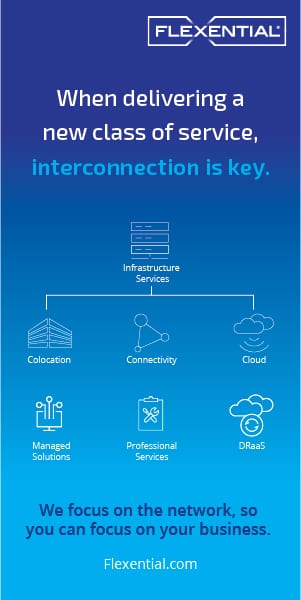View from the C-Suite with Scott Nelson, Colliers’ New CEO, Occupier Services, Global
 After heading Occupiers Services in the Americas for global commercial real estate services leader Colliers International, Scott Nelson was named CEO of the global business this summer.
After heading Occupiers Services in the Americas for global commercial real estate services leader Colliers International, Scott Nelson was named CEO of the global business this summer.
Since joining Colliers in 2009, Nelson has developed and steadily grown the business organically year-over-year. Under his leadership, Colliers continues to do more with regional and global occupier clients, by adding real value through enterprising, advisory-focused services and a unique approach to technology services.
In his new role, effective since August, Nelson is focused on driving greater consistency and enabling the highest level of service to Colliers’ clients while growing the number of multi-market engagements across its global platform.
[emaillocker id=26087]We talked with Nelson, a member of IAOP’s Strategic Advisory Board, about the PropTech buzz, next-generation workforce strategies, industry consolidation and the simple advice he follows.
Congratulations on your new role. Tell us about your responsibilities as CEO, Occupier Services – Global.
I’m responsible for a strategic plan to solidify our place as the most enterprising and collaborative business and culture of the big four in Occupier Services globally. This will enable even more accelerated growth over the next five years.
What trends are impacting outsourcing service providers?
Our core business is advisory within real estate for anything from data and analytics, to transactions and project management. Colliers has consistently been selected for IAOP’s Global Outsourcing 100 list every year since its inception.
I see the following four trends impacting service providers:
- There’s continued consolidation. The industry is still highly fragmented with the big four real commercial real estate firms making up almost 20 percent of the overall market opportunity.
- The industry continues to aspire to add more strategic value for clients and not only be an implementer. Commoditization has occurred in some parts of the business and, as a result, service providers are trying to move upstream and make a strategic difference for clients.
- Clients are trying to bundle more services with fewer providers or partners, to simplify how they do business and leverage buying power.
- PropTech (real estate property technology) and the number of companies in the start-up phase has never been greater. The amount of money going toward PropTech continues to explode.
 What are some examples of PropTech (the use of information technology to help individuals and companies research, buy, sell and manage real estate) and what are the challenges?
What are some examples of PropTech (the use of information technology to help individuals and companies research, buy, sell and manage real estate) and what are the challenges?
Some examples of PropTech are workflow and process automation – not requiring as much human involvement. Visualization technology is big across many areas whether it be business intelligence and strategic planning or virtual reality of what a space or property may look like.
The future is bright as far as technology in our industry. But it is very much fragmented. The industry continues to search for the most fundamental platforms that can be used and seeing who those winners will be for technology.
What are the trends in corporate real estate?
One of the biggest trends in our industry is the flexible workspace (“co-working”, etc.) category of solutions that is growing exponentially. It offers clients opportunities to have more choices and take their businesses in different ways than in the past. We see this area continuing to grow because of how attractive it is to occupiers.
What is the global outlook for services?
We see a lot of growth in helping clients think through very complex challenges. Continuing to drive a high intelligence strategy around real estate will be something that gets a lot of focus and investment.
In the next 10 years, our industry will look a lot different and the value proposition to clients will continue to change quite a bit. You’ll see technology doing more of the work in areas that are commoditized and the need for more consulting type offerings.
What are some new and emerging technologies Colliers is using to enhance your offerings?
We have new technologies around communication and collaboration internally and also with our clients. Colliers is also piloting and using a lot of technology around workflow automation to be more consistent and have more quality control.
We have a PropTech accelerator where we mentor and invest in emerging companies every year. Colliers recently announced our 2019 class of 10 PropTech startups globally who will tackle a wide range of solutions, including quant valuation and investing, crowdfunding, asset fractionalization, machine learning, artificial intelligence, blockchain, as well as augmented and virtual reality.
What next-generation workforce strategies is Colliers implementing?
We want to be the most attractive company to new entrants into the real estate industry, people who bring different perspectives and backgrounds to help us deliver even better advice to our clients.
Is Colliers using robotics?
I see robotics coming into play in certain processing functions such as back-office support, shared services, abstracts for lease agreements, contracts, rent payments, etc. We are piloting some robotics around identifying trends in client data to help us analyze opportunities and risks, and also tools to understand our business better, our client base and opportunities for growth.
Who are your role models?
There are plenty, but my parents and grandparents the most.
What is the best advice you’ve received?
Keep things simple, don’t overcommit, listen, and avoid corporate politics.
What books do you like to read?
I enjoy books about business strategy, collaboration, communication and innovation.
What do you like to eat – at home and on the road?
I like healthy food in general and prefer American, Italian and Asian food.[/emaillocker]







